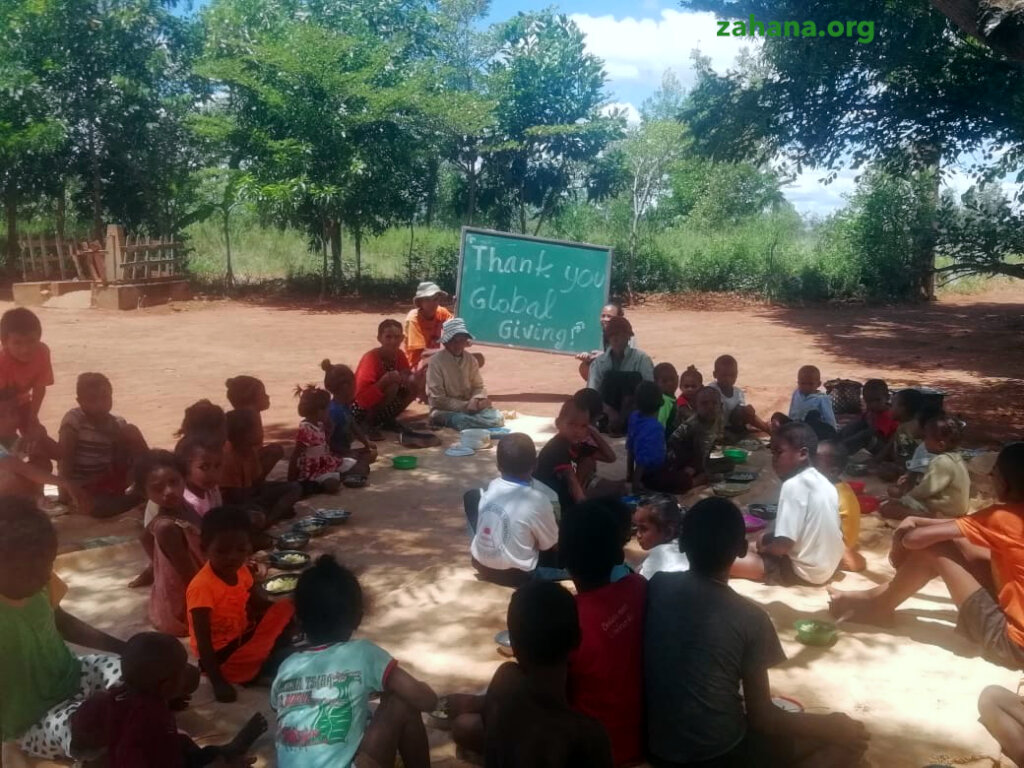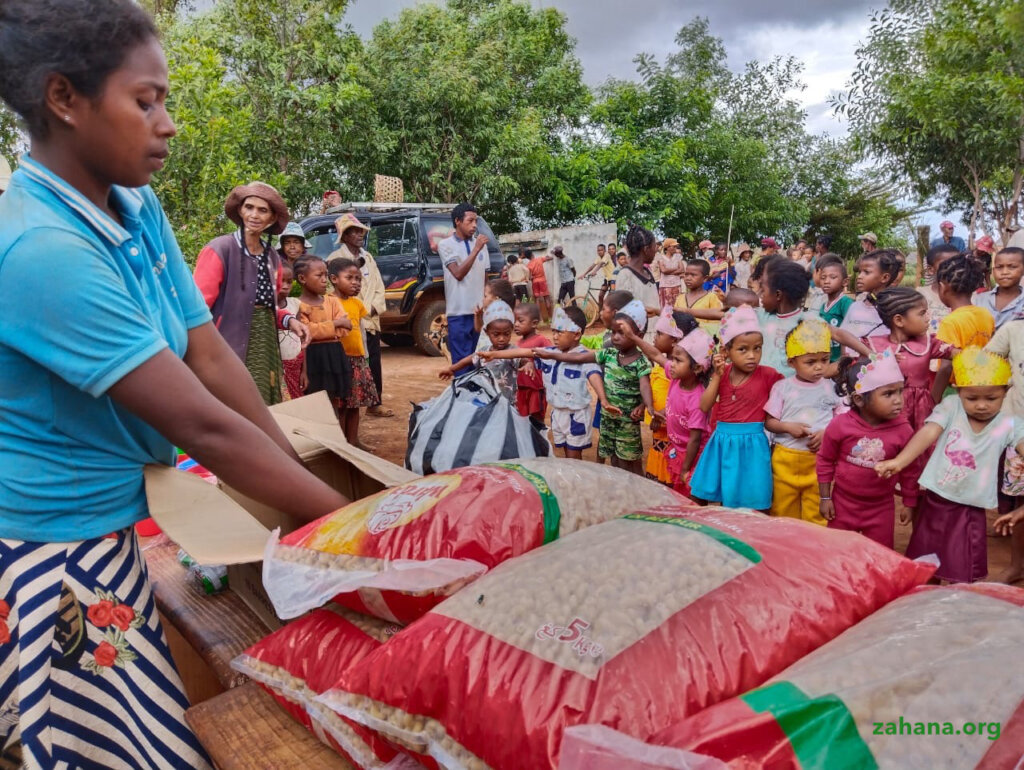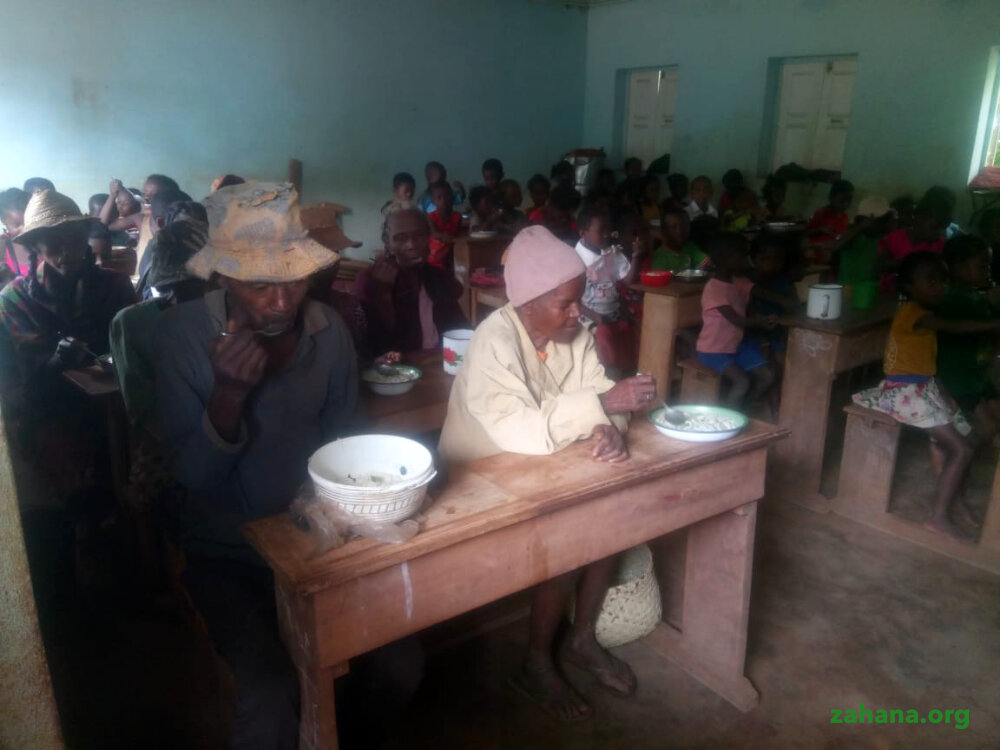By Markus Faigle | Volunteer
The Challenge:
Zahana works currently in 4 villages that have a formal relationship with us. Additionally, 2 more villages are associated with us and involved in carrying out certain activities such as running a tree nursery, soap making or improved cookstoves.
During this lean season (époque dure, the time between the end of the year and the next rice harvest), everyone is suffering from malnutrition, also in our villages. Zahana is trying, thanks to the support of its partners, to contribute according to its possibilities.
A mini-workshop in the town of Tsiroanomandidy was organized by Zahana. Representatives from each of the four villages attended and participated in our mini-workshop to analyze the situation together and seek out solutions to this persistent systemic problem within our reach.
Learning basic knowledge about nutrition was part of the workshop. It has been highlighted by the presenters that many foods could be an alternative to or possible replace rice. (Background: Rice is culturally the foundation of any meal in Madagascar, please see our website). It is time to diversify our diet. We were seeking solutions that would foster solidarity at the community level and help find pragmatic and workable solutions that can be implemented immediately.
The participants are aware that most people, being poor, face difficulties during the lean season in their own, and all surrounding villages.
The Solution: Friday Village Soup
After discussing it was decided by mutual agreement to organize the “Friday Village Soup (FVS)” or “Lasopy Zoma an-tanana” in Malagasy (lasopy = soup; zoma = Friday; village = tanana).
Thus, a day of soup reserved for malnourished children but also elderly people in difficulty in their community will be organized every Friday, hence the name “Friday Village Soup” (FVS).
Surveys carried out by the Local Leaders Committee and current support received by ZAHANA from GlobalGiving have identified the following needs:
Total 355 (including 30 elderly people in difficulty): 28 bags per month or 56 bags for January and February.
Remarks:
It was decided during the mini workshop that we would use noodles, not rice for the soup. Noodles also are easy and quick to cook and different or an alternative to what they used to eat all their lives.
Based on the availability of each village, green leaves like moringa, sweet potato leaves or vegetables are added to the noodles. Dried shrimp add flavor to the soup and are considered a special treat.
Representatives from each village, having participated at this mini-workshop, accepted the challenge to prepare the soup for these vulnerable groups, which will be cooked with Zahana’s improved cookstoves and only bio-charcoal as cooking fuel.
The beneficiaries will have to come with their own bowl and a spoon at the time set by each respective team from their village. In order to strengthen their immune system, elderly people will be provided with multivitamin tablets as well.
Our students from our Zahana schools will benefit as well. In addition to their already reinforced school food, they are also entitled to share in the FVS together with the above-mentioned groups.
This approach falls within the framework of strengthening community solidarity and the relationship between kids in the village with the elderly that we call “Raiamandreny = parents” in Malagasy.
At the same time, the school vegetable garden is encouraged to grow vegetables that can be used to make the soup with noodles more nutritious.
Feedback for the last March 2024 meeting of the Leader’s Committee:
As the poverty is plaguing all the villagers, the committee’s leader reported to us the request from their respective communities to continue the FVS until April and to extend it to all children in each village. Many children couldn’t understand why they weren’t included within the group of vulnerable people getting FVS, or why some of their friends who playing football with them enjoyed it and they couldn’t.
By Markus Faigle | Volunteer
By Markus Faigle | Volunteer
Project reports on GlobalGiving are posted directly to globalgiving.org by Project Leaders as they are completed, generally every 3-4 months. To protect the integrity of these documents, GlobalGiving does not alter them; therefore you may find some language or formatting issues.
If you donate to this project or have donated to this project, you can recieve an email when this project posts a report. You can also subscribe for reports without donating.
Support this important cause by creating a personalized fundraising page.
Start a Fundraiser

